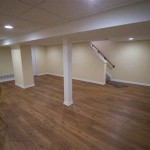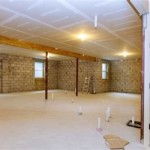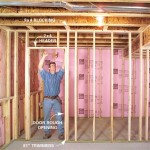Moisture Barrier for Concrete Basement Floor
Basements are prone to moisture problems due to their underground location and exposure to moisture from the soil. Water can seep through the concrete floor, causing dampness, mold growth, and structural damage. A moisture barrier can prevent these issues by creating a waterproof seal between the concrete and the interior of the basement.
There are two main types of moisture barriers for concrete basement floors: sheet membranes and liquid-applied membranes. Sheet membranes are made of plastic or rubber and are installed over the concrete floor like a tarp. Liquid-applied membranes are applied to the concrete floor like paint, forming a continuous waterproof seal.
Sheet Membranes
Sheet membranes are the most common type of moisture barrier for concrete basement floors. They are available in a variety of materials, including:
- Polyethylene
- Polypropylene
- Rubber
Sheet membranes are typically installed by overlapping the edges of the membrane and sealing them with tape or adhesive. They can be installed over a concrete floor that is rough or uneven, and they can be covered with a variety of flooring materials, including carpet, tile, and hardwood.
Liquid-Applied Membranes
Liquid-applied membranes are a newer type of moisture barrier for concrete basement floors. They are made of a variety of materials, including:
- Epoxies
- Polyurethanes
- Acrylics
Liquid-applied membranes are applied to the concrete floor like paint using a brush, roller, or spray gun. They form a continuous waterproof seal that is seamless and can conform to irregular surfaces. Liquid-applied membranes can be covered with a variety of flooring materials, including carpet, tile, and hardwood.
Choosing a Moisture Barrier
The type of moisture barrier you choose will depend on the specific needs of your basement. If you have a rough or uneven concrete floor, a sheet membrane is a good option. If you have a smooth concrete floor, a liquid-applied membrane may be a better choice. You should also consider the cost and durability of the different types of moisture barriers.
Installing a Moisture Barrier
It is important to install a moisture barrier correctly in order to ensure its effectiveness. The following steps will help you install a moisture barrier on your concrete basement floor:
- Prepare the concrete floor by cleaning it and removing any debris.
- Overlap the edges of the moisture barrier by at least 6 inches and seal them with tape or adhesive.
- Cover the moisture barrier with a layer of gravel or sand to protect it from damage.
- Install your flooring material over the moisture barrier.
By following these steps, you can install a moisture barrier that will protect your basement from moisture damage for years to come.

Underslab Retrofits Sealing Slabs Waterproof Magazine

Are Vapor Retarders Necessary For Basement And Garage Floors

Underslab Retrofits Sealing Slabs Waterproof Magazine

Do This Before Laying Carpet In Your Basement

Floor Vapor Barrier Resch Enterprises

How To Install The Moisture Barrier Over Concrete Subfloor

Moisture Block Pro 175 Sf Roll

Vapor Barrier In Basement What Is It And How Does Work

Our Complete Crawl Space Vapor Barrier System

Vapor Barriers And Underslab Solutions Waterproof Magazine
See Also








